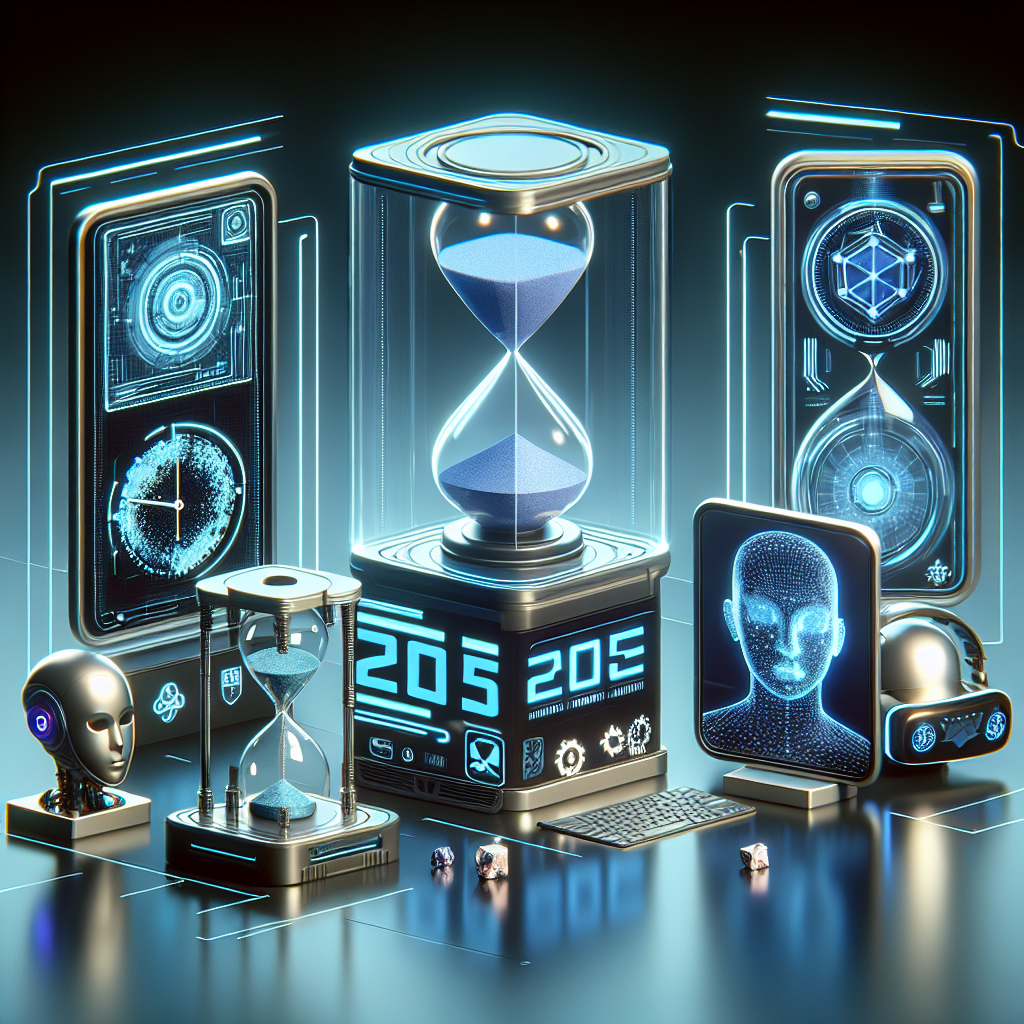The future of technology is exciting and unknown, yet one thing is certain: artificial intelligence (AI) is at the forefront of this ongoing revolution. AI is poised to disrupt every industry, and the time has come to explore the top 5 digital products with AI for 2025. These groundbreaking products are set to redefine the way we live, work, and interact.
Introduction
The rapid evolution of technology, particularly AI, is a testament to the human spirit of innovation. From self-driving cars to voice-activated virtual assistants, AI is making our lives more convenient and efficient. But what does the future hold? In this article, we’ll delve into the top 5 AI products predicted to dominate the digital landscape by 2025.
1. AI-Driven Autonomous Vehicles
Overview
Autonomous vehicles, also known as self-driving cars, are one of the most anticipated AI-powered products. These vehicles are designed to navigate without human input by perceiving their environment through advanced sensors and AI algorithms. By 2025, we expect this technology to have reached unprecedented levels of sophistication and ubiquity.
Pros and Cons
- Pros:
- Increased safety by eliminating human error.
- Greater efficiency in traffic and fuel consumption.
- Increased mobility for those unable to drive.
- Cons:
- High cost of technology and infrastructure.
- Legal and insurance complexities.
- Potential job loss in driving-related industries.
2. Personalized AI Health Monitors
Overview
AI-powered health monitors are expected to take personalized healthcare to new heights. These wearable devices will leverage AI to analyze your health data in real-time, offering personalized insights and recommendations. This technology could revolutionize preventive healthcare and disease management.
Pros and Cons
- Pros:
- Real-time health tracking and personalized advice.
- Early detection of potential health issues.
- Empowers individuals to take control of their health.
- Cons:
- Potential privacy concerns with personal health data.
- Reliability and accuracy of AI predictions.
- May promote over-reliance on technology for health.
3. AI-Powered Virtual Reality (VR)
Overview
By 2025, AI-powered virtual reality (VR) could offer fully immersive digital experiences. AI will enable realistic interactions within the VR environment, making it a game-changer for entertainment, education, and training scenarios. Imagine, for instance, practicing a new language with AI-driven characters in a VR rendition of Rome or Paris.
Pros and Cons
- Pros:
- Provides immersive, interactive experiences.
- Great potential in education, training, and entertainment.
- Can simulate scenarios for skill development.
- Cons:
- Possible health effects from prolonged use.
- High cost of VR equipment.
- Can lead to social isolation.
4. AI-Based Personal Assistants
Overview
AI personal assistants will become even more intelligent and personalized by 2025. They’ll understand your preferences, anticipate your needs, and perform tasks on your behalf. This goes beyond asking Siri for the weather; think of an AI assistant planning your day, managing your finances, or even ordering groceries based on your diet and preferences.
Pros and Cons
- Pros:
- Enhances productivity by automating tasks.
- Personalized assistance based on individual data.
- Accessible on various devices and platforms.
- Cons:
- Potential privacy and security concerns.
- Reliance on internet connectivity.
- May encourage laziness and dependency on AI.
5. Smart AI-Powered Homes
Overview
By 2025, AI will make homes smarter than ever. Imagine a home where your AI system optimizes energy use, automates chores, and even detects maintenance issues before they become severe. This isn’t just about convenience; it’s about enhancing the quality of life at home.
Pros and Cons
- Pros:
- Increased convenience and efficiency.
- Potential energy savings.
- Enhanced home security.
- Cons:
- High setup and maintenance costs.
- Potential privacy and security risks.
- Reliance on constant internet connectivity.
Conclusion
The world is on the brink of an AI revolution, and these top 5 digital products are just the tip of the iceberg. By 2025, we can expect AI to be an integral part of our daily lives, bringing both remarkable benefits and new challenges. As we stand on the precipice of this exciting future, it is up to us to shape how we adopt and adapt to these technological advancements.
FAQs
1. What is the future of AI in everyday life?
AI is set to pervade every aspect of our lives, from transportation with autonomous cars to personalized healthcare, immersive VR experiences, intelligent personal assistants, and smart homes. These technologies will aim to make our lives more convenient, efficient, and personalized.
2. What are the potential disadvantages of AI?
While AI holds immense promise, it also presents challenges. These include potential job losses due to automation, privacy and security concerns, high costs, and an over-reliance on technology, among others. It’s essential to address these issues as we embrace AI.
3. How will AI affect jobs?
AI is likely to automate many routine tasks, which could lead to job losses in certain sectors. However, it’s also expected to create new jobs that require AI-related skills. The key is to prepare for this shift through education and training.
